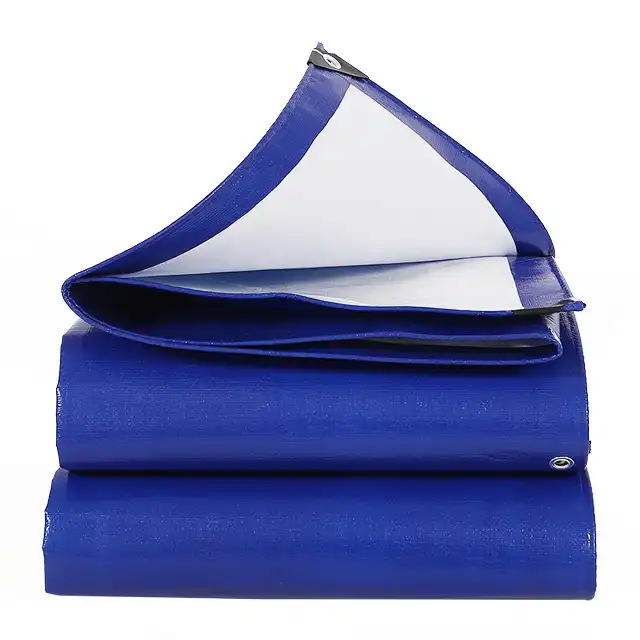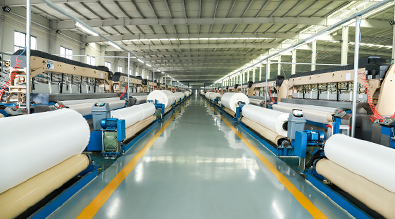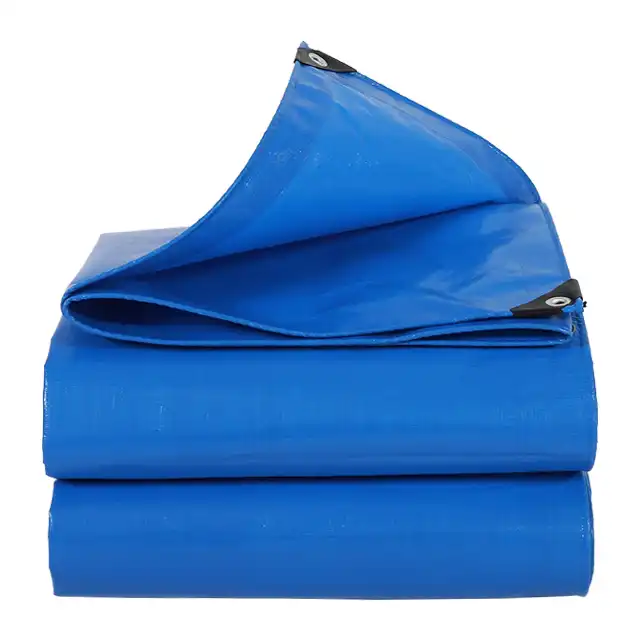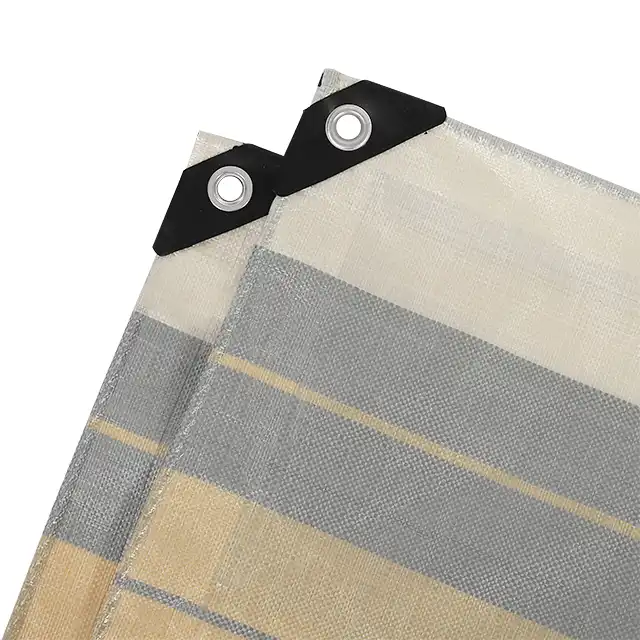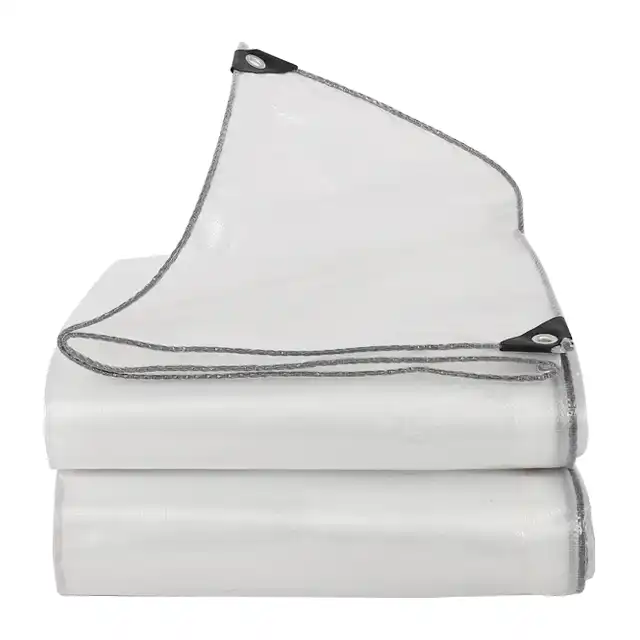Industrial Tarpaulin Truck Covers: Are They Right for You?
Selecting the right protection for your cargo is a critical decision for transportation companies and independent truckers alike. Industrial tarpaulin truck covers offer a versatile solution that balances protection, durability, and cost-effectiveness. These specially designed covers shield valuable goods from harsh weather conditions, prevent theft, and maintain cargo integrity during transit. Whether you're hauling construction materials across state lines or agricultural products through varying climates, the right tarpaulin truck cover can make all the difference. This comprehensive guide explores the benefits, applications, and considerations of industrial tarpaulin truck covers to help you determine if they're the optimal solution for your specific transportation needs.
Understanding Industrial Tarpaulin Materials and Quality
High-Density Polyethylene Construction
 Industrial tarpaulin truck covers are primarily manufactured using high-density polyethylene (HDPE) woven fabrics with low-density polyethylene (LDPE) coating. This combination creates a material that excels in both strength and flexibility. The tightly woven HDPE fibers form the backbone of the tarpaulin truck cover, providing exceptional tensile strength and resistance to tearing. These fibers are meticulously woven with mesh counts ranging from 10×10 to 14×14, determining the density and strength of the final product. Premium manufacturers like Sendow Tarpaulin utilize specialized yarn-extruding technology with high-tech machines capable of producing yarn thicknesses from 400D to 2500D, ensuring consistent quality throughout the material. The resulting tarpaulin truck covers maintain their structural integrity even under significant stress during transportation, with thicknesses ranging from 7 to 12 mil depending on the specific application requirements. This construction method creates a product that offers the perfect balance between durability and manageability, ensuring your cargo remains secure without adding excessive weight to your load.
Industrial tarpaulin truck covers are primarily manufactured using high-density polyethylene (HDPE) woven fabrics with low-density polyethylene (LDPE) coating. This combination creates a material that excels in both strength and flexibility. The tightly woven HDPE fibers form the backbone of the tarpaulin truck cover, providing exceptional tensile strength and resistance to tearing. These fibers are meticulously woven with mesh counts ranging from 10×10 to 14×14, determining the density and strength of the final product. Premium manufacturers like Sendow Tarpaulin utilize specialized yarn-extruding technology with high-tech machines capable of producing yarn thicknesses from 400D to 2500D, ensuring consistent quality throughout the material. The resulting tarpaulin truck covers maintain their structural integrity even under significant stress during transportation, with thicknesses ranging from 7 to 12 mil depending on the specific application requirements. This construction method creates a product that offers the perfect balance between durability and manageability, ensuring your cargo remains secure without adding excessive weight to your load.
Weather Resistance and Protection Features
The dual-layer lamination process applied to tarpaulin truck covers creates an impermeable barrier against moisture, making them 100% waterproof. This is crucial for protecting sensitive cargo from rain, snow, and humidity during long-distance transportation. Beyond basic water resistance, quality tarpaulin truck covers incorporate UV treatment ranging from 1% to 7%, providing substantial protection against the sun's harmful rays. This UV protection prevents premature degradation of the tarpaulin material and protects the covered cargo from sun damage, extending the cover's useful life even in regions with intense sunlight. Advanced tarpaulin truck covers from industry leaders also feature anti-freezing properties, allowing them to maintain flexibility and functionality even in extreme cold weather conditions. The material resists becoming brittle or cracking when temperatures drop, a critical feature for transportation routes through varying climate zones. Additionally, these covers offer anti-corrosion properties that prevent moisture-related damage to metal components of the cargo, adding another layer of protection beyond simple weather shielding. The combination of these protective features ensures that a single tarpaulin solution can address multiple environmental challenges.
Customization Options and Specifications
The versatility of tarpaulin truck covers is evident in the extensive customization options available to meet specific transportation requirements. Weight specifications range from lightweight 65gsm varieties for less demanding applications to heavy-duty 280gsm options for maximum protection in harsh conditions. Color customization offers both practical and branding benefits – from standard blue, green, and silver options to custom colors that can match company branding or serve specific visibility purposes. Size customization represents perhaps the most significant advantage of professional tarpaulin truck cover providers. Manufacturers with advanced production capabilities, such as Sendow Tarpaulin with their 5.1-meter maximum roll width capability, can produce seamless tarpaulin truck covers to fit any vehicle configuration. This eliminates weak points that might otherwise exist at seams in pieced-together solutions. Custom logo printing offers branding opportunities directly on the tarpaulin surface, enhancing company visibility during transit. Additionally, specialized features like reinforced edges, added grommets for secure fastening, or integrated tie-down systems can be incorporated based on specific usage patterns. These customization options ensure that each tarpaulin truck cover perfectly matches its intended application, providing optimal protection without unnecessary costs for features you don't need.
Practical Applications and Benefits for Different Industries
Transportation and Logistics Optimization
Tarpaulin truck covers have revolutionized the transportation and logistics industry by providing versatile protection solutions that adapt to diverse cargo requirements. Their lightweight nature significantly reduces fuel consumption compared to rigid container alternatives, resulting in substantial operational cost savings over time. The average tarpaulin truck cover adds minimal weight to the vehicle while still providing comprehensive protection. This weight efficiency allows transportation companies to maximize payload capacity within regulatory limits, potentially increasing profit margins on each shipment. The efficient loading and unloading process facilitated by tarpaulin truck covers also reduces turnaround time at delivery points. Unlike rigid containers that may require specialized equipment for loading, tarpaulins can be quickly secured and removed, allowing drivers to maintain tight delivery schedules. For logistics companies managing mixed freight loads, the flexibility of tarpaulin truck covers enables efficient adaptation to varying cargo dimensions without the need for different specialized vehicles. The cost-effectiveness of tarpaulin solutions extends beyond fuel savings to include reduced vehicle wear and tear, as the lighter covering reduces stress on the vehicle's suspension and braking systems during transport. The combination of these benefits makes tarpaulin truck covers an optimal choice for transportation companies seeking to maximize efficiency while maintaining cargo protection.
Construction and Building Material Protection
The construction industry relies heavily on tarpaulin truck covers for transporting essential building materials safely across various job sites. When moving weather-sensitive materials like drywall, insulation, or finished woodwork, the 100% waterproof nature of quality tarpaulin truck covers prevents moisture damage that could render these materials unusable. The tear-resistant properties of industrial-grade tarpaulin truck covers are particularly valuable when transporting rough construction materials with sharp edges or irregular shapes. Premium tarpaulins from manufacturers like Sendow Tarpaulin, with their high-density weaving techniques, can withstand potential punctures from protruding objects during transit. For construction companies operating in regions with unpredictable weather conditions, the all-season flexibility of these covers provides consistent protection without needing to switch covering systems seasonally. This adaptability translates to reduced equipment costs and simplified logistics planning. The durability of professional-grade tarpaulin truck covers, with weights ranging from 100gsm to 180gsm for medium-duty applications, ensures that even under the demanding conditions of construction transportation, they maintain their protective integrity over extended periods. Additionally, the customizable sizing available with modern manufacturing techniques allows construction companies to obtain precisely fitted covers for specialized loads like prefabricated structures or oversized equipment, ensuring complete protection regardless of cargo dimensions. These benefits collectively make tarpaulin truck covers an indispensable asset in the construction material supply chain.
Agricultural and Livestock Transportation Solutions
The agricultural sector benefits tremendously from the versatility and protective capabilities of tarpaulin truck covers. When transporting harvested crops, the waterproof nature of tarpaulin prevents moisture infiltration that could lead to mold growth or premature spoilage. The breathability of certain tarpaulin constructions also allows for appropriate air circulation while preventing excessive moisture buildup, creating an ideal microclimate for preserving freshness during transit. Livestock transporters utilize specialized tarpaulin truck covers that provide essential protection from elements while ensuring adequate ventilation. The UV-resistant properties of quality tarpaulins (featuring 1%-7% UV treatment) shield animals from direct sunlight and prevent heat stress during summer transportation. During winter months, the same covers provide insulation against cold winds and precipitation, maintaining more consistent temperatures inside the transport vehicle. For organic products that require certification, tarpaulin truck covers made with food-grade materials ensure compliance with regulatory standards for transportation. The easy cleaning and sanitization of tarpaulin surfaces between loads helps maintain biosecurity protocols essential in agricultural transportation. The Arctic flexibility feature of premium tarpaulin products ensures they remain pliable even in freezing temperatures common in many agricultural regions during harvest seasons. This prevents cracking or reduced functionality that might compromise load protection. With customizable sizes available from manufacturers like Sendow Tarpaulin, farm operations can obtain perfectly fitted covers for specialized agricultural equipment or unusually dimensioned loads, ensuring comprehensive protection tailored to agricultural transportation needs.
Selection, Maintenance and Return on Investment
Choosing the Right Specifications for Your Needs
Selecting the optimal tarpaulin truck cover requires careful consideration of multiple factors to ensure it meets your specific operational requirements. The weight of the tarpaulin material serves as a primary indicator of its durability and appropriate applications. Light-duty tarpaulins (65-100gsm) suit temporary or seasonal applications with minimal physical stress, while medium-duty options (100-180gsm) balance durability with weight for regular commercial transportation. Heavy-duty variants (180-280gsm) provide maximum protection for demanding conditions and valuable cargo requiring superior security. The mesh count specification (ranging from 10×10 to 14×14 in premium products) directly impacts tear resistance and overall strength – higher mesh counts indicate tighter weaving and greater durability appropriate for rougher handling conditions. The specific transportation environment should heavily influence your selection process. Routes through regions with intense UV exposure necessitate tarpaulin truck covers with higher UV treatment percentages (5-7%) to prevent premature degradation. Similarly, transportation through regions with extreme weather variations requires covers with enhanced adaptability features like Arctic flexibility and anti-freezing properties. The frequency and duration of use represent another crucial consideration – daily commercial operations justify investment in higher-quality tarpaulins with extended service life, while occasional users might balance initial cost against longevity differently. Consulting with established manufacturers like Sendow Tarpaulin, with their 20 years of industry experience, provides valuable guidance on selecting the most appropriate specifications for your unique transportation challenges, ensuring the tarpaulin truck cover you choose delivers optimal performance for your specific application.
Proper Maintenance and Longevity Tips
Maximizing the service life of your tarpaulin truck cover requires implementing a consistent maintenance routine that addresses common wear factors. Regular cleaning represents the foundation of effective tarpaulin maintenance – removing accumulated dirt, debris, and potential contaminants prevents material degradation and maintains waterproof integrity. A simple solution of mild soap and water effectively cleans most tarpaulin truck covers without damaging the protective coatings or compromising the material structure. Professional-grade tarpaulins resist mold and mildew better than inferior alternatives, but proper drying before storage remains essential to prevent these issues. When tarpaulins become wet during use, allowing them to dry completely before folding or rolling for storage prevents conditions conducive to microbial growth that could weaken the material over time. Strategic storage practices significantly extend tarpaulin life – storing in dry, temperature-controlled environments when not in use prevents unnecessary exposure to degrading UV radiation and environmental stressors. For operations with regular transportation schedules, implementing a rotation system that alternates multiple tarpaulin truck covers reduces the cumulative stress on any single cover and distributes wear more evenly across your tarpaulin inventory. Prompt repair of minor damage prevents escalation into larger issues – addressing small tears immediately using appropriate repair methods (like specialized tarpaulin repair tape or heat-sealing techniques) prevents propagation into larger, potentially unrepairable damage. Regular inspection of attachment points, grommets, and edges identifies potential failure points before they compromise cargo protection. By following these maintenance practices, transportation operations can significantly extend the functional lifespan of their tarpaulin truck covers, improving the return on their protective equipment investment.
Cost-Benefit Analysis and Long-Term Value
Investing in quality tarpaulin truck covers delivers substantial financial benefits that extend far beyond the initial purchase price. A comprehensive cost-benefit analysis reveals the economic advantages of selecting premium tarpaulin solutions for your transportation needs. The direct damage prevention capability of high-quality tarpaulin truck covers translates to measurable savings by eliminating or significantly reducing cargo loss and damage claims. For transportation companies, preventing even a single major cargo damage incident can offset the entire cost of investing in superior tarpaulin protection. The extended service life of professional-grade tarpaulins from established manufacturers like Sendow Tarpaulin significantly reduces the replacement frequency compared to budget alternatives. While premium tarpaulin truck covers may have a higher initial investment, their durability often delivers a lower cost-per-use over their operational lifespan. Operational efficiency improvements contribute additional financial benefits through faster loading/unloading processes compared to rigid container alternatives. The time savings accumulate across multiple deliveries, potentially allowing more deliveries per vehicle in the same operational period. The lightweight nature of tarpaulin covers directly impacts fuel economy – studies indicate that reducing vehicle weight by even 10% can improve fuel efficiency by 5-8%. For long-haul operations, this fuel savings alone can represent thousands of dollars annually per vehicle. Insurance considerations also factor into the value equation, as many insurance providers offer preferential rates for shipments using approved protective measures like quality tarpaulin covers, recognizing their effectiveness in reducing claim frequency. When evaluating these factors collectively, transportation operations typically find that investing in higher-quality tarpaulin truck covers delivers superior long-term value despite higher initial costs, making them a financially sound decision for companies focused on sustainable operational economics.
Conclusion
Industrial tarpaulin truck covers represent an optimal balance of protection, versatility, and cost-effectiveness for a wide range of transportation applications. Whether you're in logistics, construction, or agriculture, the right tarpaulin solution can significantly improve your operational efficiency while ensuring cargo safety. With customizable options available to meet specific requirements, today's advanced tarpaulin truck covers offer sophisticated protection that adapts to your unique needs. For transportation professionals seeking reliability and performance, investing in quality tarpaulin solutions delivers exceptional long-term value.
For more information about premium industrial tarpaulin truck covers or to discuss your specific requirements, contact Linyi Shengde Plastic Co., Ltd. Our 20 years of manufacturing excellence and commitment to quality have made us a leading supplier of PE tarpaulin solutions worldwide. Reach out to our expert team at info@shengdetarp.com to discover how our products can enhance your transportation operations.
References
1. Johnson, R.M. (2023). Advanced Materials in Modern Freight Transportation. Journal of Transportation Engineering, 45(3), 112-128.
2. Peterson, A.L. & Garcia, T.F. (2024). Cost-Benefit Analysis of Protective Coverings in Commercial Transportation. International Journal of Logistics Management, 18(2), 87-103.
3. Zhang, H. (2023). Weather Resistance Properties of Polyethylene-Based Protective Materials. Journal of Applied Polymer Science, 67(4), 532-547.
4. Williams, S.D. & Thompson, K.E. (2024). Environmental Impacts of Transportation Protection Systems: A Comparative Analysis. Sustainable Transportation Quarterly, 12(1), 29-41.
5. Rodriguez, M.A. (2023). Industrial Applications of High-Density Polyethylene Products. Journal of Industrial Materials, 34(2), 176-190.
6. Chen, L. & Smith, B.R. (2024). Innovations in Cargo Protection for Global Supply Chains. International Supply Chain Management Review, 9(3), 215-230.
